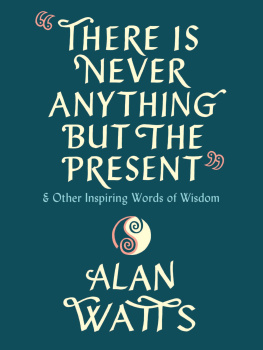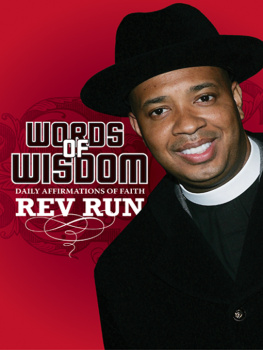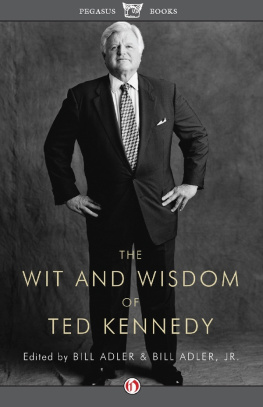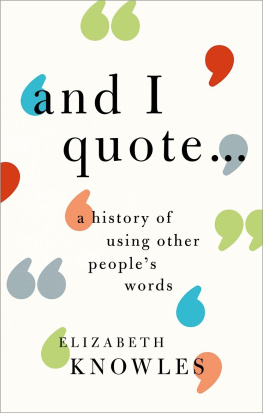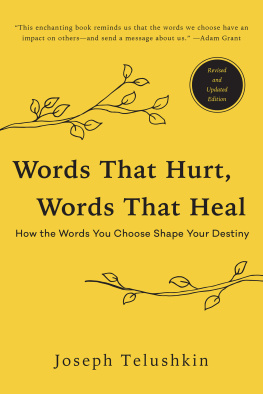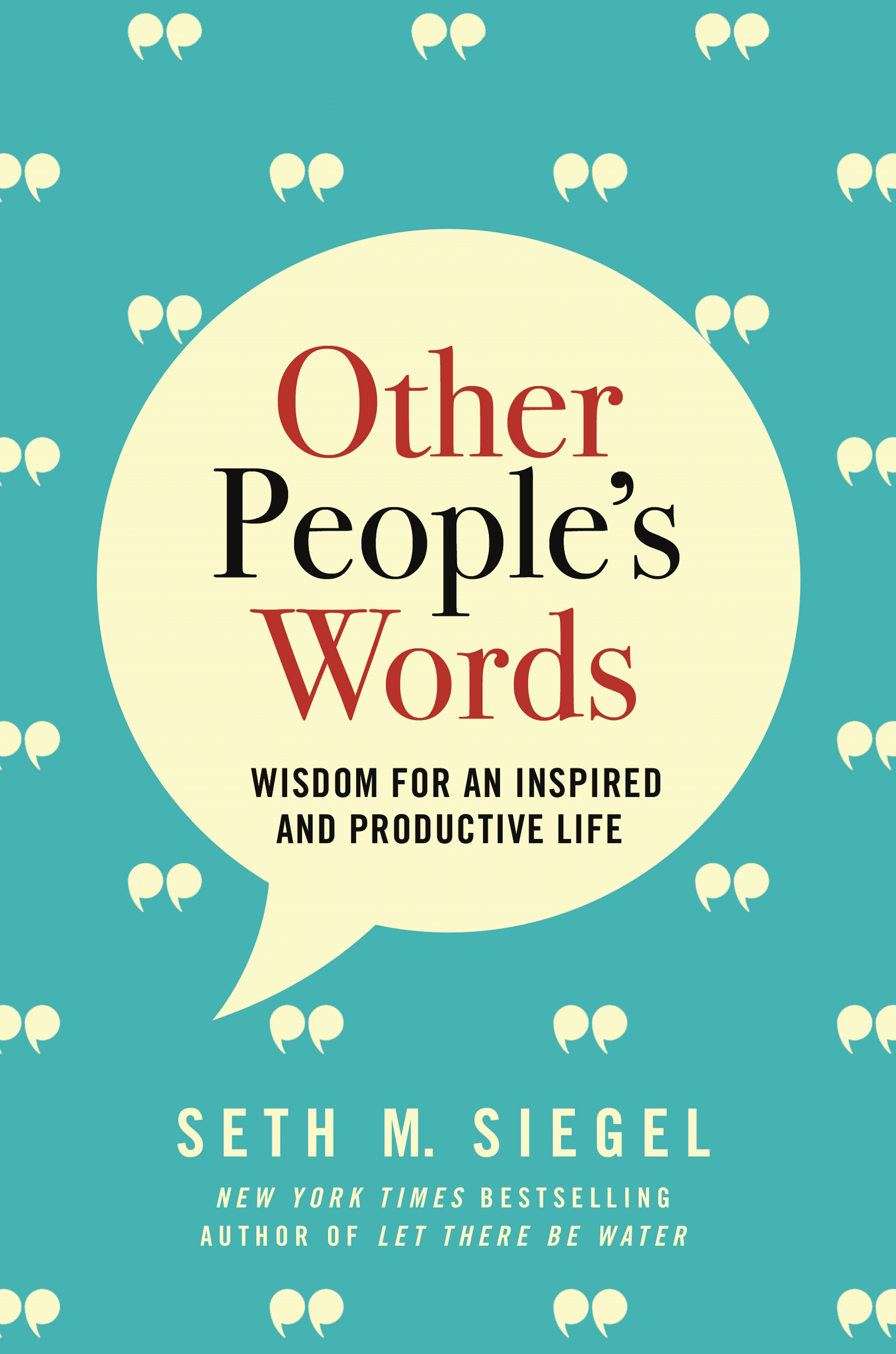The author and publisher have provided this e-book to you for your personal use only. You may not make this e-book publicly available in any way. Copyright infringement is against the law. If you believe the copy of this e-book you are reading infringes on the authors copyright, please notify the publisher at: us.macmillanusa.com/piracy.
The day I started this quotations collection was also a day of culture shock. I was a member of a small delegation from my high school in a mostly Jewish and Black neighborhood in Queens, New York. We were visiting a high school in an affluent suburban community on Long Island that was unlike mine in more than ethnicity and race. While my school had crowded classrooms and three shifts to accommodate more than five thousand students, this one was amply spaced with small classes. As you might expect, it also had gorgeous athletic facilities, and even a parking lot for students who drove themselves to school.
What I remember most from the visit wasnt the disparity between our lives and theirs, but the social studies classroom where this collection began. Someoneprobably the teacherhad mounted several powerfully worded quotations above the blackboard. Each was of the kind that might motivate a student to become an engaged citizen involved in some important cause. I cant say if any of the students were inspired by the ideas mounted on the wall, but I certainly was. Not carrying a notebook that day, I found a scrap of paper in my shirt pocket and copied down two of them.
The first of the quotations was attributed to eighteenth-century statesman and philosopher Edmund Burke. It was,
The only thing necessary for the triumph of evil is for good men to do nothing.
The second was equally dramatic. Soon after World War II, the anti-Nazi German theologian Martin Niemller wrote,
They came first for the Communists, and I didnt speak up because I wasnt a Communist. Then they came for the Jews and I didnt speak up because I wasnt a Jew. Then they came for the trade unionists, and I didnt speak up because I wasnt a trade unionist. Then they came for me, and by that time there was no one left to speak up.
When I got home, I put the piece of paper into a drawer where I kept my T-shirts and socks. While I might have soon paid no attention to those two jotted-down sayings and the paper might have inched its way to the back of the dresser as forgotten keepsakes seem to do, instead, it somehow served as a catalyst. I began copying down other inspiring quotations and adding them to the drawer. From time to time, Id take out all my scribbled notes and read through them, feeling wiser thanks to my contact with such profound ideas. But other than adding more bits of paper to the pile, it didnt then occur to me to do anything else with them.
Early in my second year of college, my connection to these scraps began to change. I started thinking of them as a collection worth tending. On a trip home, I put them all into a small box and brought them back to school. One rainy weekend, I typed out the many quotations I had copied down onto separate index cards, which I then organized alphabetically by categories I assigned to them.
In the months that followed, I found myself digging into my assigned class readings (and also into my own pleasure reading) seeking more additions to the collection. The criteria for selection were that the quotation had to be brief and well phrased, and it also had to contain an idea that was new to me or that expressed, far better than I could, a thought I already had.
At the same time, I noticed the growing power of the collection as a whole over me. I realized I had begun internalizing the ideas in the collection, and a worldviewproviding a framework for how I should live my lifebegan developing. Among other elements, this emerging worldview pushed me to stay away from distractions of the moment, to integrate my classroom learning into the larger lived world, and, amidst a dizzying range of choices, to figure out who I wanted to be. Not surprisingly, early additions to the collection spoke to each of these concerns.
For example, the importance of making good use of every minute was first conveyed to me by Benjamin Franklins
Dost thou love life? Then do not squander time, for thats the stuff life is made of.
As for integrating what I was learning in class into how I lived my life, after reading a leaflet posted on a bulletin board that included advice from activist Tom Hayden, I took the flyer, cut out his words, and taped them to the desk in my dorm. Each day, Id see and reread,
Do not study as a student, but as a person who is alive and who cares. Leave the isolated world of ideological fantasy, allow your ideas to become part of your living and your living to become part of your ideas.
And as for who I was and wanted to be, in a reading given to my creative writing class, I was moved by poet A. R. Ammonss thought that
You have your identity when you find out not what you can keep your mind on but what you cant keep your mind off.
While these quotations speak to behavior and personality, my collection wasnt limited to psychological insights or how best to motivate myself. I also began collecting comments on an array of topics like justice, nature, war, photography, and politics. As with the collected wisdom directed at my interior life, these selections helped me to understand and talk about a variety of fields, often also contributing to some part of my developing worldview.
In a political philosophy class, for example, I stumbled on an observation by the ancient Greek writer Plutarch:
They are wrong who think that politics is like an ocean voyage or a military campaign, something to be done with some particular end in view, something which leaves off as soon as that end is reached. It is not a public chore, to be got over with. It is a way of life.
Beyond the plain meaning of the words, Plutarchs advice also served to encourage my then still-evolving work ethic and to focus me on the need to take a long view while staying attentive to whats important in the moment.
Alas, college doesnt last forever, but the benefit from pursuing a moral center and a coherent worldview does. In the years since collegewhich have included graduate study in international relations, law school, working as a lawyer, falling in love and marrying, starting a business career, helping to raise a family, serving as a volunteer in several not-for-profit organizations, and writing two booksthe collection has continued to grow, as has its influence on me. Again, a few examples.
As a working person trying to build a business and to maximize my familys assets, I often needed a reminder to take time to focus on self-improvement and personal fulfillment. A short saying from a nineteenth-century essayist and critic that Ive repeated countless times has especially served as that reminder.
Life is not a having and a getting, but a being and a becoming. (Matthew Arnold)
Ive since sold my company and departed from it. For many years, Ive mostly spent my days writing, speaking, and doing volunteer communal serviceall of which have given me a different kind of joy and fulfillment than I found in the world of business. But it doesnt mean that I never look back at what I left behind. When I speak with former colleagues who are continuing to attain ever-greater financial success, I sometimes wonder if I should have continued on as an executive. Matthew Arnolds words remain a constant companion, reminding me that the path Ive chosen is right for me and urging me to continue on it.


